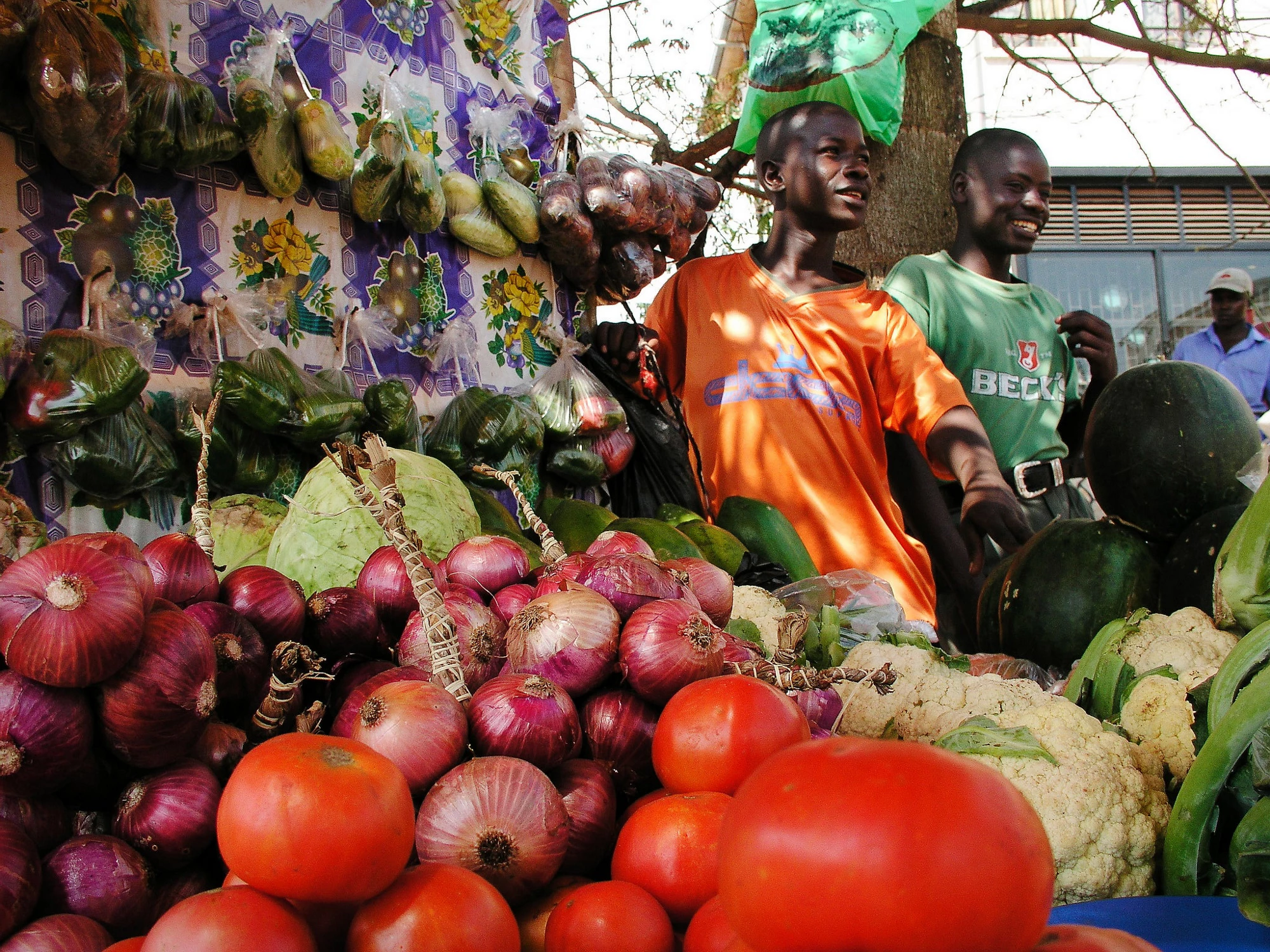A marketplace in Kampala, Uganda. Photo: Arne Hoel, The World Bank
Standing at the checkout line at Whole Foods Market while finishing up my weekly family grocery shopping, I take inventory of everything in my cart. I have honey, rice, couscous, extra virgin olive oil, juice, coffee, tea, dried beans and organic pretzels (for me). Not only did I find all of these products in one supermarket, but they were all sourced by the same Whole Foods Market buyer and delivered here by the same distribution company.
How do I know this? Because I have sold goods to companies like Whole Foods Market, a prime retail chain in the United States, having been in the specialty foods industry for the past two decades.
A single buyer makes the decision to buy each and every one of these shelf-stable grocery products, and then a single distribution company sources them from multiple suppliers and consolidates them for Whole Foods Market. This is how the supply chain works in the United States, and anywhere else in the world, including Tanzania, which is the home of infoDev’s newest addition to entrepreneur development — the Agribusiness Innovation Center (AIC).
From my conversations with buyers from Nakumatt, Uchumi, Shoppers, Shrijee, Value Markets, and every other supermarket chain in Tanzania, I have gathered that they all have streamlined supply chains and have a strong desire to source shelf-stable food products locally. Simple as this sounds, it is made complicated by the fact that local companies need to meet their requirements for certification, packaging, branding, price competitiveness, reliability, promotion and so forth. This is where the AIC has a crucial role.
Around the world, infoDev supports innovative, growth-oriented entrepreneurs, and agribusiness is an important focus area. The AIC is a sustainable platform for entrepreneur development that focuses on value-added food processing. It is set up to run as a business, not a donor program. Charging a percentage of the entrepreneur’s growth, the AIC is well-positioned to support entrepreneurs across multiple value chains, for all the reasons described above. The route to market is basically the same, and so are the requirements. For example, the Tanzania Bureau of Standards certifies honey companies the same way it certifies every other shelf-stable food company.
Admittedly, there are technical specifics to producing different products, but the process of product, market and business development is all identical. This is an important lesson, as we can clearly identify that what food processing entrepreneurs need most in Tanzania (or anywhere, for that matter) is markets. Keeping the needs of entrepreneurs in mind, fellow infoDev advisor Steve Giddings and I have launched the AIC in Tanzania with a “quick win” process called the Action Learning Program. This is an abbreviated version of the AIC, measuring entrepreneurship skills, business viability (and profitability), and providing technical skills to achieve growth.
Working with ten companies initially, producing a range of agricultural products such as sunflower oil, spices and moringa tea, we’re documenting the process of identifying opportunities, identifying the need for assistance, and gaining a thorough understanding of how to run an AIC in the Tanzanian context. With obvious differences in processing techniques and efficiency upgrades related to the product processing, our approach is the same for each. Eventually, we want these local agro-processing companies to flourish, and bring about a new productive sector.
A year from now, I envision myself shopping at Nakumatt, loading up my cart with honey, rice, double-refined sunflower oil, mango juice, dried beans, coffee and hibiscus tea (sorry, no pretzels!). By then I hope each of these products will be sourced locally from AIC clients, and that we will have developed a seamless, straightforward process for supplying local markets and growth.



Join the Conversation